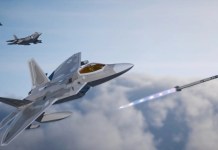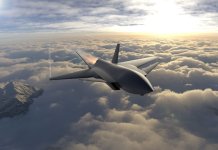The United States on Thursday said it welcomed Britain’s deal to return the Chagos Islands to Mauritius in exchange for continued use of a strategic Pacific military base also used by US forces.
Washington “welcomes the historic agreement,” Secretary of State Marco Rubio said in a statement. “This agreement secures the long-term, stable, and effective operation of the joint U.S.-UK military facility at Diego Garcia, which is critical to regional and global security.”
Mauritius welcomed a long-sought deal returning the Chagos Islands on Thursday, with Prime Minister Navin Ramgoolam calling it a “great victory.”
“This is a great victory for us and for the Mauritian nation. It completes the process of decolonisation of Mauritius, which began in 1968,” he said.
Earlier, British PM Keir Starmer announced that he had signed a contentious deal to return the remote Chagos Islands to Mauritius after a judge approved the deal.
Labour leader Starmer said the agreement was “the only way” to maintain British and American access to a key military base on the archipelago’s largest island of Diego Island.
Starmer told reporters that the deal, first touted in autumn last year, will see Britain pay its former colony £101 million ($136 million) annually for 99 years to lease the facility.
“There’s no alternative but to act in Britain’s national interest by agreeing to this deal,” Starmer said. The net cost over the length of the lease would be around £3.4 billion if inflation was factored in, he added.
He said the UK’s top allies, including US President Donald Trump, supported the deal.
His announcement followed a morning of drama at London’s High Court, which forced the postponement of the signing of the accord and threatened to embarrass Starmer’s centre-left government.
Starmer was due to conclude the agreement in a virtual signing ceremony with Mauritian representatives at 9:00 a.m. (0800 GMT).

But in a last-minute pre-dawn court hearing, two Chagossian women, Bertrice Pompe and Bernadette Dugasse, won a temporary injunction from the high court to delay the announcement.
Starmer’s government, which has faced heavy criticism over the plan, challenged that decision. Its lawyers insisted in court that for the deal to be signed on Thursday, it would require court approval by 1:00 pm.
Shortly after 12:30 p.m., Judge Martin Chamberlain lifted the temporary injunction, ruling there was a “very strong case” that extending the ban would prejudice the UK’s national and public interests.
Any further challenges would have to be heard by the Court of Appeal.
Starmer insisted that, as international legal rulings had questioned Britain’s ownership of the Chagos, only a deal with Mauritius could guarantee that the military base remained functional.
But speaking outside court, Pompe said it was a “very, very sad day”.
“We don’t want to hand our rights over to Mauritius. We are not Mauritians,” she said.
Chagos Islands: Dispute & Drama
Britain separated the Chagos Islands from its colony Mauritius more than 50 years ago, expelling the entire population to make way for what has become one of the most important US military bases.
Britain’s 1965 acquisition of the remote Indian Ocean archipelago has been disputed ever since. In 2019, the United Nations ruled that the UK should hand back the roughly 55 islands and atolls.
After British Prime Minister Keir Starmer on Thursday signed a deal — following legal wrangling — to return the islands to Mauritius, here are some key details about Chagos:
Indian Ocean Colony
Located several hundred kilometres (miles) south of the Maldives, the Chagos Islands were colonised by France in the 18th century, and African slaves were shipped in to cultivate coconuts and copra.
In 1814, France was made to cede the islands to Britain, which in 1903 merged them with Mauritius, its colony around 2,000 kilometres (1,200 miles) to the southwest.
After the abolition of slavery in 1834, Indian workers arrived and mixed with the first settlers. Only three of the islands were inhabited: Diego Garcia, Salomon, and Peros Banhos.
Mass Eviction
In 1965, Britain separated the Chagos Islands from the rest of Mauritius, then a semi-autonomous British territory eyeing independence.
Britain paid three million pounds for them, the equivalent of around 50 million pounds ($65 million) today.
When Mauritius became independent three years later, the islands remained under British control and were renamed the British Indian Ocean Territory (BIOT).
In 1966, Britain leased the islands to the United States for 50 years to set up a military base. In 2016, the deal was extended to 2036.
Between 1968 and 1973, around 2,000 Chagos islanders were evicted, a move described in a British diplomatic cable at the time as the removal of a “few Tarzans and Man Fridays.”
Most were shipped to Mauritius and the Seychelles.
Mauritius argued it was illegal for Britain to break up its territory and demanded the right to resettle former residents.
Strategic Military Base
The US military base on Diego Garcia, the largest island, became of major strategic importance during the Cold War.
It offered proximity to Asia as an assertive Soviet navy extended communist influence in the Indian Ocean.
After the 1979 Iranian revolution, the United States expanded the base to receive more warships and heavy bombers.
In recent years, it served as a staging ground for US bombing campaigns in Afghanistan and Iraq.
Islanders Take Action
Chagos islanders living in Mauritius launched legal proceedings in 1975 against their expulsion, resulting in a 1982 payment of four million pounds in compensation, along with land valued at one million pounds.
There were no reparations for islanders settled in the Seychelles.
In 2007, a British appeals court allowed Chagossians to return home, but the upper House of Lords annulled its decision the following year.
In 2016, the British government confirmed its opposition to the resettlement of Chagossians, including for reasons of defence, security, and cost.
Around 10,000 Chagossians and their descendants are divided between Mauritius, the Seychelles, and Britain.
ICJ Ruling
In 2010, Britain declared the islands part of a Marine Protected Area, arguing that people should not be permitted to live there.
Diplomatic cables revealed by WikiLeaks quoted a British official as saying the plan “put paid to the resettlement claims of the archipelago’s former residents”.
The move backfired, as a UN arbitration tribunal declared it illegal in 2015. In 2019, the International Court of Justice (ICJ) stated that Britain had illegally split the islands and should relinquish control.
Britain rejected the ruling, insisting that Mauritius was wrong to bring the case to court, and arguing the Diego Garcia base played a “vital role” in keeping the region safe.
Later that year, a UN General Assembly resolution demanded Britain cede the islands.
Via: Agence France-Presse




